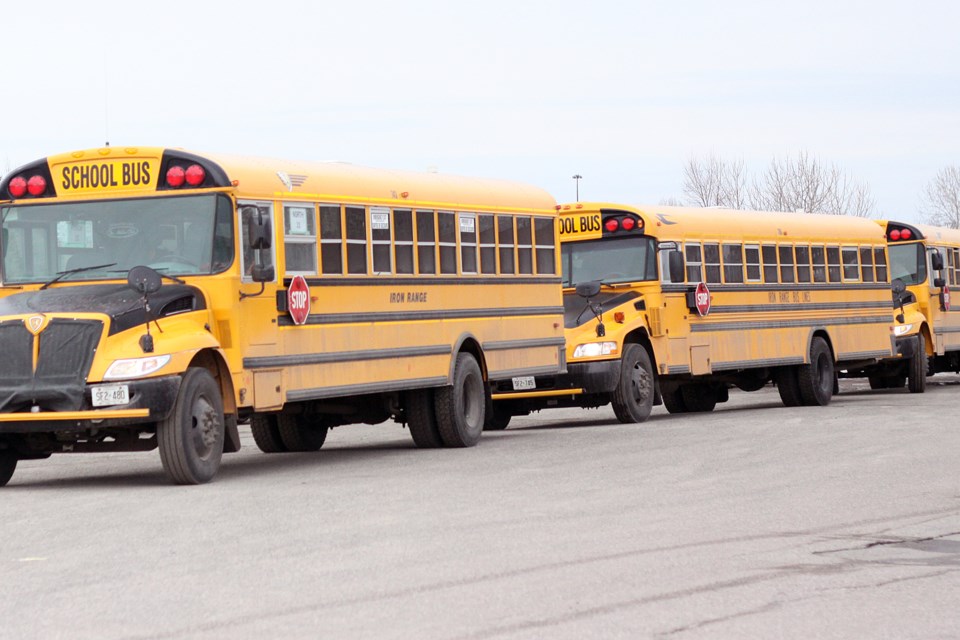THUNDER BAY – School is back in session for students in Thunder Bay, though tightening of a bus transportation policy meant some children had to find other ways to get to class.
Student Transportation Services of Thunder Bay, which manages busing for the Lakehead Public School Board, Thunder Bay Catholic District School Board and local French Catholic board, has been receiving calls from parents expressing concerns about their children not being eligible for busing because of living too close to their school and a petition urging a review of the policies has amassed more than 1,000 signatures.
School transportation consortium manager Craig Murphy said changes were made to reconfigure routes with more centralized stops, with buses no longer going into cul-de-sacs or down certain dead-end streets.
But, Murphy said, the distance requirement for students eligible for busing remains the same, though less flexibility is being exercised than in previous years.
“Certainly over the years the boards have been able to offer a little bit more of a service because the funding was available to provide that service. Unfortunately, the costs of transportation have increased quite a bit to where the funding for transportation is no longer able to provide the extra service,” Murphy said on Wednesday.
“This year what we’ve done is we have gone back to sticking to policy. It’s the same policy that’s been in place for many years.”
Students in grades 1 to 3 who live more than 800 metres from their school are eligible for busing, while students in Grade 4 and older who live 1.6 kilometres beyond their school can get a bus ride.
But for some parents, that distance is too far for the younger students that could be facing the mile trek.
Sandy Bouchard started an online petition after learning earlier this summer that her nine-year-old daughter Madison will not be riding the bus as she starts Grade 4 at Vance Chapman Public School.
“When they told me she wasn’t going to get busing my fear was to tell her because I knew she was going to be very upset,” Bouchard said.
“She wants to be safe. She’s scared. It hurts me that my daughter is hurt by this. She always had the comfort of getting on a bus to get to school and now she doesn’t have that comfort and she’s worried.”
Bouchard, who works 12-hour shifts, is particularly concerned about the winter months on colder days she works and would not be able to drive her children.
“At -25C they are not allowed to go out for recess. It’s too cold for them. But you’re expecting children to walk to school in -30C to -40C weather?” Bouchard said. “The icy conditions of the road, what if someone gets hurt? They told me it was my responsibility to get my children to school safely.”
Murphy, who noted that the first day of school is the busiest for consortium staff, said requests for special circumstances will be considered on a case-by-case basis, though many of the issues that are frequently raised will not be a factor.
“We do get a lot of people concerned about crime, the weather and wildlife. Unfortunately those are environmental factors you’ll find anywhere you go anywhere in the province,” Murphy said.
Murphy said exceptions are more likely to be considered for students with documented medical conditions that would prevent them from being able to get to school.
The stricter adherence to the policy could save the school boards up to $500,000, though Murphy said every dollar that is received from the provincial government for student transportation is spent.
The most generous eligibility requirements across the province are here, he added.
“If you look at many other areas, boards across the province generally have higher eligibility distances than Thunder Bay,” Murphy said.
